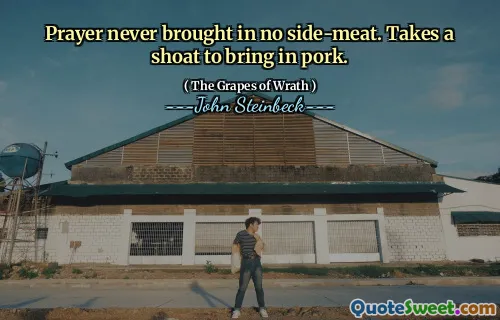"The Grapes of Wrath," written by John Steinbeck, is a poignant narrative set during the Great Depression, focusing on the Joad family. The story begins in Oklahoma, where they face hardship due to the Dust Bowl's devastating effects on agriculture. As they are displaced from their land, the Joads embark on a harrowing journey westward to California, motivated by the promise of work and a better life. Their journey symbolizes the struggles of countless families seeking hope during an era of economic despair.
Loading...
More »
Today Birthdays
1940 -
Arlie Russell Hochschild
1929 -
Martin Luther King, Jr.
1914 -
Etty Hillesum
1908 -
Edward Teller
2004 -
Grace VanderWaal
1984 -
Ben Shapiro
1931 -
Thomas Hoving
1988 -
Skrillex
1963 -
Bruce Schneier
1906 -
Aristotle Onassis
1947 -
Pete Waterman
1850 -
Sofia Kovalevskaya
1979 -
Drew Brees
1941 -
Captain Beefheart
1791 -
Franz Grillparzer
1974 -
Rachel Roy
1960 -
Kelly Asbury
1948 -
Tadashi Shoji
1844 -
Cole Younger
1918 -
Gamal Abdel Nasser
1909 -
Gene Krupa
1893 -
Ivor Novello
1949 -
John Podesta

